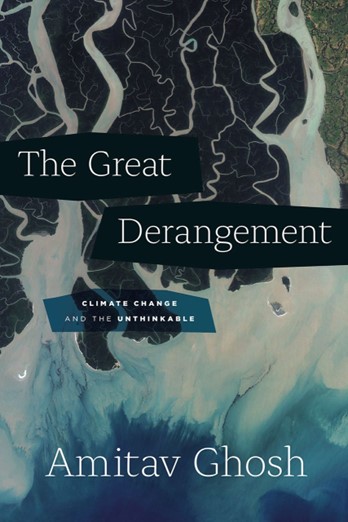This is the first post in our series highlighting the units that comprise the MA in Environmental Humanities, taught by members of the Centre.
Introduction to Environmental Humanities is a core unit on our MA in Environmental Humanities, and it provides a way into the discipline by posing key questions that motivate research and scholarship at its cutting edge. It asks how humanities disciplines can help us to understand the complex environmental challenges that the world is facing. How has the study of literature, history, thought, and visual arts, among other areas, engaged with the environment over time? What does it mean to adopt an interdisciplinary approach to the environmental humanities?
This introductory unit addresses these questions and traces the emergence of the field of environmental humanities. It pays particular attention to perspectives from the Global South and postcolonial contexts, and explores the significance of collaborative practices, both across disciplines and with non-academic partners. The unit provides space for students from a range of disciplinary backgrounds to work together to establish a shared understanding of the shape of the field, and covers a number of important approaches including ecocriticism, environmental history, and ecofeminism.

The unit aims to help students explain how the field of environmental humanities has developed in dialogue with a range of disciplines, and employ their knowledge to critically analyse recent developments in the field. Constructing arguments, verbally and in writing, is at the core of the unit, particularly arguments that assess the relative importance of factors shaping the past, present and the future of the environmental humanities. Students will also work collaboratively and individually to evaluate the ability of environmental humanities scholarship and methods to contribute to real-world initiatives tackling environmental challenges.

We spoke to the unit convenor, Dr Paul Merchant, about what he is looking forward to when teaching Introduction to Environmental Humanities:
What excites you most about this unit?
I’m really looking forward to exploring ideas, texts and artworks from a wide range of cultural contexts and academic disciplines. The environmental humanities allow (and in fact encourage) us to try out new approaches and to think creatively, and our seminars will be a space for doing just that. It’s exciting to be working in an area that is growing and changing at such pace, and we’ll be thinking not just about the history of the environmental humanities, but also about where they might go next.
How does this unit speak to your research?
My research explores how writers and artists in Chile and Peru create work that responds to socio-environmental challenges in the Pacific Ocean and coastal areas. In many of these works, indigenous perspectives are brought into contact with a scientific understanding of ecology, and with complex local histories. An interdisciplinary environmental humanities approach, of the kind we’ll explore in this unit, therefore helps me appreciate how contemporary art and literature can generate new forms of environmental knowledge and public engagement.
If you were recommending one thing to read, watch, listen to or do ahead of studying this course, what would it be?
Amitav Ghosh’s book The Great Derangement: Climate Change and the Unthinkable argues that human culture and thought have to a large extent failed to grasp the scale of the climate crisis. It’s a provocative argument, and a great starting place for discussion. And there’s a sequel, The Nutmeg’s Curse…
Introduction to Environmental Humanities is a core course on our new MA in Environmental Humanities. You can find out more about the programme here.

